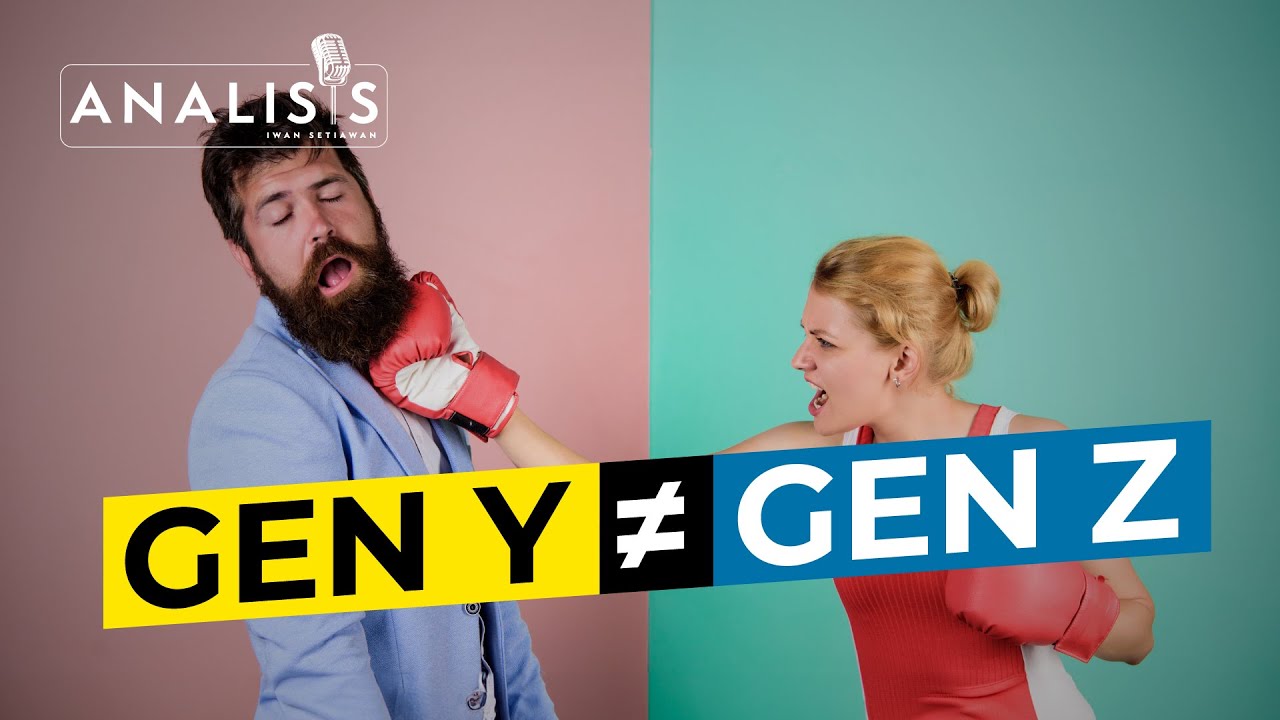Hello Gen Z: EPISODE 4 ‘Why we spend so much time on social media’
Summary
TLDRIn this episode of 'Hello Gen Z,' the complexities of Generation Z's identity and online presence are explored. Members of Gen Z express their discomfort with labels like 'Gen Z' and reflect on how technology and social media shape their lives. The episode highlights how social media serves as a powerful tool for connection, activism, and self-expression but also brings challenges like mental health struggles, online radicalization, and generational misunderstandings. Gen Z discusses the normalization of gender-neutral pronouns and their growing sense of community, despite the pressure and negativity they face online. The generation's openness about mental health and activism underscores their desire for change and belonging.
Takeaways
- 😀 Gen Z often rejects the label of 'Gen Z,' as many feel it oversimplifies or misrepresents their diverse experiences.
- 😀 Social media is a central part of Gen Z's life, with many spending over 7 hours a day on screens, primarily for social connections and activism.
- 😀 Gen Z is highly connected through social media, enabling them to form meaningful relationships across vast distances.
- 😀 Gender-neutral pronouns are commonly used by Gen Z, with many prioritizing inclusivity and challenging traditional gender norms.
- 😀 Gen Z uses social media as a platform for personal expression, political activism, and identity exploration.
- 😀 Many Gen Z members feel more connected to others online than in real life, using platforms to engage in causes and share their identity.
- 😀 Online spaces can serve as both a source of support and a place of harm, with some Gen Z individuals experiencing radicalization or exposure to harmful content.
- 😀 Mental health is a growing concern for Gen Z, with higher rates of anxiety, depression, and suicide, often linked to social media use.
- 😀 Despite challenges, Gen Z values transparency and authenticity, with many finding hope and solidarity through their online communities.
- 😀 Gen Z is actively involved in social and political causes, using platforms like Instagram and TikTok to advocate for change and raise awareness on global issues.
Q & A
Why does Panchito Martinez dislike the label 'Gen Z'?
-Panchito Martinez describes himself as a rebellious member of Gen Z who does not approve of the categorization of his generation. He believes that the label is imposed by other generations and does not reflect the diverse experiences and opinions within Gen Z.
What is the key theme of the podcast episode?
-The key theme of the episode is identity and belonging. It explores how Gen Z navigates the push to fit in while also desiring to stand out, and how their coming-of-age story differs from previous generations.
How much time does Gen Z spend on screens daily?
-Gen Z spends more than seven hours on screens each day, which does not include time spent on schoolwork. This screen time has significantly impacted their social lives and mental health.
What role does social media play in Gen Z's social connections?
-Social media plays a crucial role in Gen Z's social lives. Many of them find stronger, more fulfilling connections online than in person, using platforms like Instagram and Twitter to engage with friends and communities. It also serves as a medium for activism and self-expression.
Why do many Gen Z members use gender-neutral pronouns?
-Many Gen Z members use gender-neutral pronouns to express their identities more authentically. The use of 'they/them' has become normalized, especially among younger people, reflecting the generation's increasing awareness and acceptance of non-binary identities.
What is the impact of social media on Gen Z's mental health?
-Social media has a complex effect on Gen Z's mental health. While it allows them to stay connected and find community, it can also contribute to feelings of isolation, comparison, and anxiety. The constant exposure to curated content and the pressure to be authentic can be overwhelming for many.
How does Gen Z approach social activism?
-Gen Z is highly engaged in social activism, often using social media to raise awareness and mobilize around causes such as climate change, racial justice, and gender equality. They also find community through online spaces, where they can connect with like-minded individuals to create change.
What does Nina Salome say about older generations' discomfort with pronouns?
-Nina Salome mentions that older generations are often uncomfortable with the use of pronouns, especially gender-neutral ones. She believes that Gen Z normalizes the use of pronouns and encourages others to get past their stereotypes and understand the importance of pronouns in fostering inclusivity.
What is the significance of the 'Subtle Asian Traits' Facebook group for Crystal Sung?
-The 'Subtle Asian Traits' Facebook group is significant for Crystal Sung as it helps her connect with other Asian Americans and celebrate her cultural heritage. The group uses humor to address cultural experiences and fosters a sense of pride in their shared identity.
What mental health issues are more prevalent in Gen Z compared to previous generations?
-Gen Z faces higher rates of anxiety, depression, and suicide than previous generations. This increase coincides with the rise of smartphones and constant access to social media, which researchers suggest has impacted their psychological well-being and self-esteem.
Outlines

This section is available to paid users only. Please upgrade to access this part.
Upgrade NowMindmap

This section is available to paid users only. Please upgrade to access this part.
Upgrade NowKeywords

This section is available to paid users only. Please upgrade to access this part.
Upgrade NowHighlights

This section is available to paid users only. Please upgrade to access this part.
Upgrade NowTranscripts

This section is available to paid users only. Please upgrade to access this part.
Upgrade Now5.0 / 5 (0 votes)





